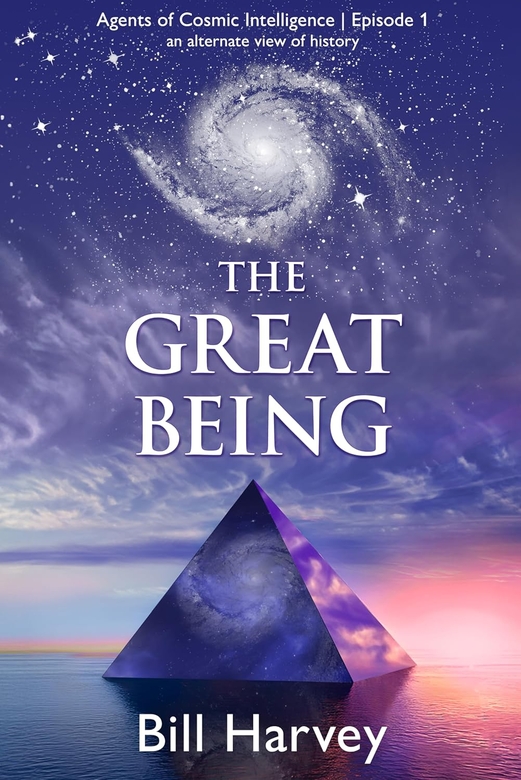An eon-spanning epically creative work of visionary alternate history, The Great Being by Bill Harvey is a sprawling parable about the powerful forces behind our interconnected existence.
After the Nothingness came into awareness of itself 14 billion years ago, it began to create energetic bodies and fantastical creatures, which spread out across the vast cosmos, but that didn’t mean they were easy to control. That’s where the Agents of Cosmic Intelligence come into play, helping to influence the course of time and the fate of entire worlds created by the great deity.
Melchizedek and Layla are sent to Prehistoric Earth as Neanderthal babies, tasked with kickstarting ethical progress on the planet to avoid the inevitable violence to come in the future. These cosmic intelligence agents must navigate the challenges of life on Earth, including potentially losing themselves in the complex reality of humanity and forgetting their ultimate mission.
Even as infants, their uncanny wisdom and intelligence were recognized by the elders’ council of their tribe, but the complexity of human emotions and the insidious nature of ego remain critical obstacles for these undercover cosmic agents. As the agents generate new patterns and thoughts in the minds of early humans, they drive evolution forward at a rapid pace as they are sporadically reborn throughout history. However, Melchi and Layla are not the only beings of higher consciousness on Earth; Rebels who have abandoned the One Self and the Great Being have taken up refuge and gained power in the young species’ civilization.
Blending realms of historical, religious, spiritual, and mythological traditions, this is an ambitious and epically creative read, but the full value will be more readily apparent to those readers who can see the threads of allegory, legend, and science woven into one unified whole. Enlightenment and radical self-awareness are powerful undercurrents within the narrative; the role of dogmatic thinking, hierarchical power structures, and the tyranny of knowledge are explored in various ways through the characters’ revelations, opinions, and personalities.
The story within a story here is one of psychological development and the real-life pursuit of higher modes of thinking. Essentially, as Melchi and Layla move forward through time, they come to appreciate and understand the full range of human nature, from brutal militarism and competitive instincts to unexpected expressions of compassion, sacrifice, and curiosity, offering a wide-reaching and insightful assessment of human civilization and behavior.
In terms of execution, there are some inconsistencies and errors, from missing prepositions to anachronistic language and variations in narrative formality. Phrases like “don’t sweat the small stuff” and “taking things with a grain of salt” are idioms that contemporary readers will recognize, for example, but they feel jarring as part of an internal monologue of characters from tens of thousands of years ago. Although the spoken dialogue is occasionally inconsistent, swinging quickly from primitive speech patterns to 20th-century jargon, the use of telepathic communication is formatted well and adds an extra storytelling tool to the author’s kit.
With a final editing pass to trim narrative tangents and standardize the writing style, this frequently profound novel would deliver an even greater existential impact, but as it stands it is a singularly unique and eye-opening work of visionary fiction.
Book Links
STAR RATING
Design
Content
Editing
Get an Editorial Review | Get Amazon Sales & Reviews | Get Edited | Get Beta Readers | Enter the SPR Book Awards | Other Marketing Services
























Leave A Comment